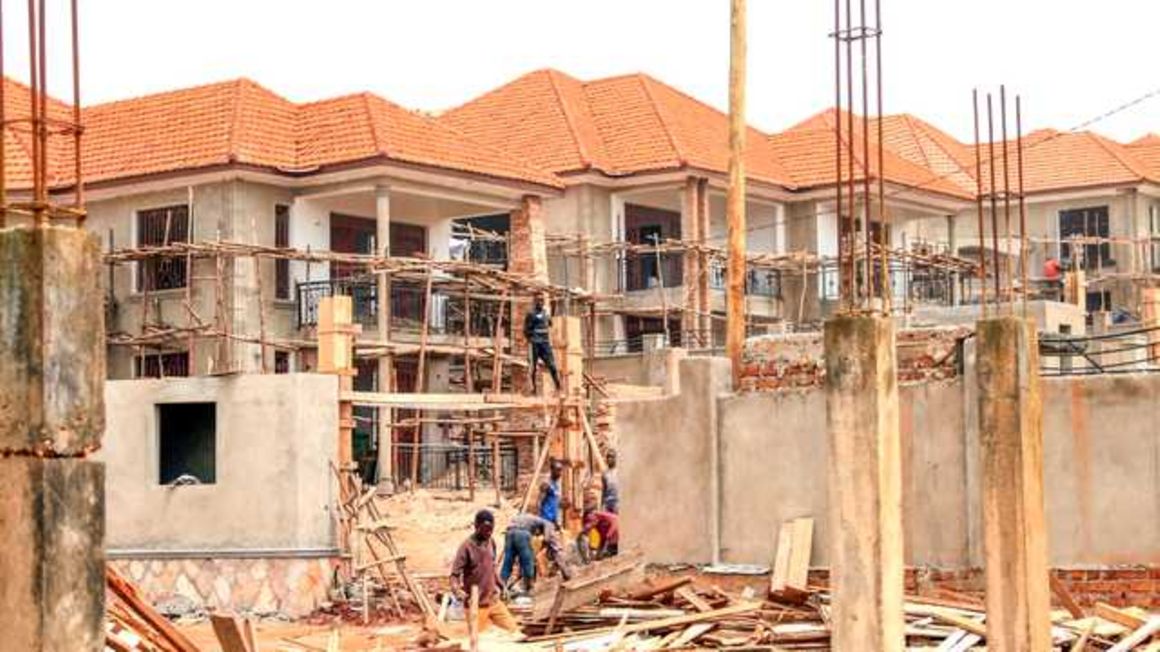Residential houses being constructed in Wakiso District in central Uganda. Tax exemption on construction materials will boost the property industry. PHOTO | MORGAN MBABAZI | NMG Whereas some real estate industry players have predicted a slow growth for the rest of this year, general performance indicators recorded during the first half of 2021 point to a resilient sector ready to benefit from future economic recovery or boom.
Many of key growth indicators fell by less than five percent in contrast with the leisure and hospitality sector which has seen revenues drop by more than 50 percent since the coronavirus pandemic broke out.
Uganda’s real estate industry exhibited some resilience during the first six months of 2021 in spite of painful lockdown measures though with several struggling tenants, depressed landlords and a surge in the number of properties put up for sale by commercial banks seeking to recover money from distressed borrowers.
Whereas some real estate industry players have predicted a slow growth for the rest of this year following the 42-day lockdown period that ended last month, general performance indicators recorded during the first half of 2021 point to a resilient sector ready to benefit from future economic recovery or boom.
“The debate as to whether 2021 would be a year of recovery from the total disruption and destabilisation faced in 2020 has been put to sleep with the current lockdown which has dampened any hope of recovery and stifled the little momentum that had been gained,” reads an industry research note published by Knight Frank Uganda, a real estate management company.
Many of key growth indicators fell by less than five percent in contrast with the leisure and hospitality sector which has seen revenues drop by more than 50 percent since the coronavirus pandemic broke out alongside several job losses and diminished cash flows experienced in many hotels and restaurants. Six months
The data compiled by Knight Frank Uganda shows average occupancy rates posted by high-end office buildings dropped from 84 percent during the first six months of 2020 to 81 percent during the same period in 2021.
Average rental prices levied in high-end office premises fell by about three percent during the first six months of this year compared to the same period in 2020 in a market segment that usually charges tenants $14 to $16 per square metre.
An extra 6,000 square metres of office space was added to the local […]
